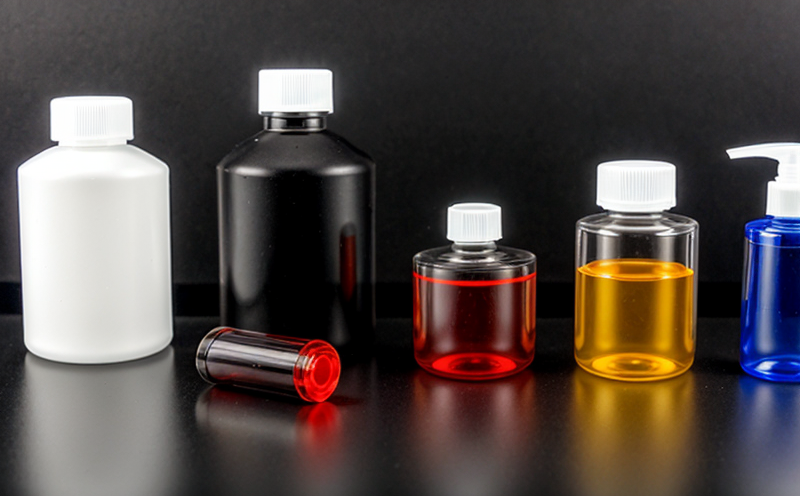ISO 5272 Tensile Creep Testing of Nanoparticle Enhanced Polymers
The ISO 5272 method is a cornerstone in the evaluation of tensile creep properties, which are critical for assessing the long-term mechanical behavior of materials under stress. This test is particularly relevant when dealing with nanoparticle-enhanced polymers, as it allows for an understanding of how these nanomaterials influence the material's resistance to deformation over time.
Nanoparticles such as carbon nanotubes, graphene, and metal oxides are increasingly being incorporated into plastics and polymers to enhance their mechanical, electrical, thermal, and chemical properties. However, these enhancements must not come at the cost of reducing the polymer's durability under stress, especially in applications where long-term performance is crucial.
The ISO 5272 test measures how a material maintains its tensile strength over time when subjected to constant stress. This is important for polymers containing nanoparticles because while these materials can exhibit enhanced mechanical properties initially, they may also experience premature aging or creep behavior that could compromise their long-term integrity.
Our laboratory uses state-of-the-art equipment and adheres strictly to ISO 5272 standards. We ensure precise specimen preparation and controlled environmental conditions during testing to minimize variables and provide accurate results. The test involves subjecting the polymer samples containing nanoparticles to a defined stress level in a constant temperature and humidity environment, monitoring the deformation over time.
The results of this test are essential for ensuring that the enhanced polymers meet or exceed specified performance standards. This information is critical for quality managers, compliance officers, R&D engineers, and procurement teams who need to ensure not only the immediate mechanical strength but also the long-term reliability of their materials.
Understanding creep behavior helps in optimizing formulations by identifying the optimal concentration of nanoparticles that provide desired enhancements without leading to accelerated degradation. This ensures that products perform as expected over their intended lifespan, which is crucial for industries such as automotive, electronics, and construction where durability is paramount.
The test results can also guide material selection processes by highlighting the unique properties of different nanoparticle types and concentrations. For instance, carbon nanotubes might offer superior tensile strength but could lead to more creep than other types under certain conditions. By conducting this test, we provide valuable insights that enable informed decisions in product development.
In summary, ISO 5272 tensile creep testing is a vital tool for assessing the long-term performance of nanoparticle-enhanced polymers. It helps ensure that these materials meet stringent quality and safety standards while providing a foundation for continuous improvement in material science research.
Why It Matters
The importance of tensile creep testing cannot be overstated, especially when dealing with advanced composite materials like nanoparticle-enhanced polymers. These materials are often used in high-stress environments where the ability to maintain structural integrity over time is critical.
Ensures long-term reliability: By identifying early signs of material degradation, this test helps ensure that products remain functional and safe throughout their lifecycle.
Aids in optimizing formulations: Understanding creep behavior allows manufacturers to fine-tune the concentration of nanoparticles for optimal performance without compromising durability.
For quality managers, compliance officers, R&D engineers, and procurement teams, this test provides crucial data that informs material selection and process optimization. It also supports regulatory compliance by ensuring that products meet or exceed specified standards.
In the broader context of nanotechnology, tensile creep testing is part of a suite of tests that collectively contribute to the advancement of sustainable and high-performance materials. By leveraging this test, we contribute to industries where reliability and performance are critical, such as aerospace, automotive, and electronics.
Applied Standards
The ISO 5272 method is widely recognized for its rigorous approach to tensile creep testing, making it an essential standard in the field of materials science. This standard ensures that tests are conducted under controlled conditions to provide consistent and reliable results.
In addition to ISO 5272, other relevant standards include:
ASTM D638 for tensile testing of plastics
ISO 14990 for creep testing of materials
These standards provide a framework that ensures the quality and consistency of our tests, making them trusted by industry professionals worldwide.
Our laboratory strictly adheres to these standards, ensuring that our results are accurate and reproducible. This commitment to best practices not only enhances the reliability of our testing but also fosters trust among clients who rely on us for critical material evaluations.





